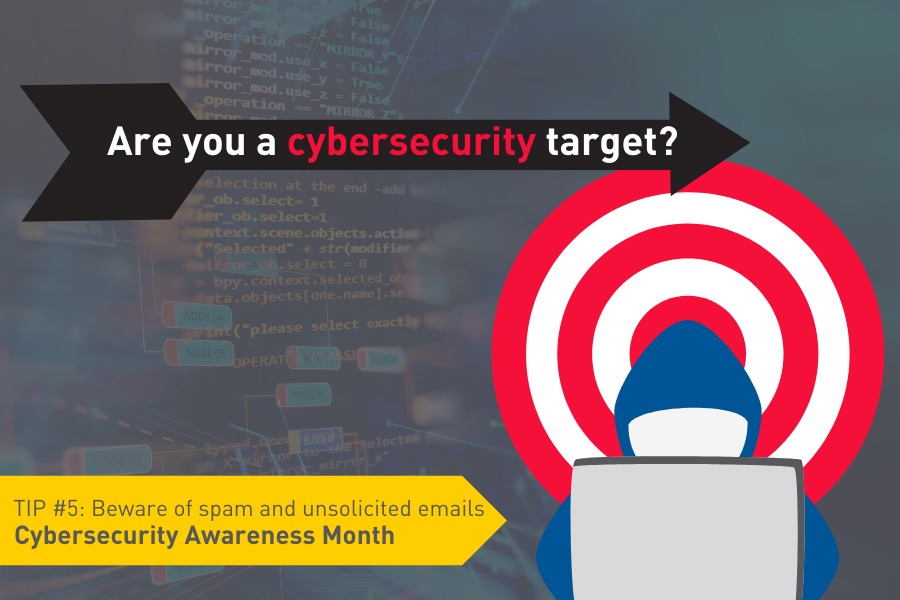
Email spam, also known as junk email or unsolicited email, refers to unwanted messages sent through email, often without the recipient’s consent. While the University of Windsor utilizes Microsoft Exchange to filter out most junk and spam, some unwanted messages may still make it through to your inbox.
If you receive any unsolicited email, the best action in nearly all cases is to delete it immediately. Often the subject line will indicate that the message is junk so you may not even need to open it. Another clue that may suggest an email is spam is the “EXTERNAL” email tag; treat these emails with extra caution. If the sender is unknown or the subject seems unusual, delete the message.
It is also important not to reply to any unsolicited emails, even if they offer an option to unsubscribe. Replying can confirm that your email address is valid, potentially leading to even more unwanted messages.
To safeguard your email and increase cybersecurity efforts, remember that UWindsor email accounts should only be used for professional and academic matters.
If you are the recipient of an unsolicited email, the basic rule is to Ignore, Delete, and Forget.
- Do not open it
- Do not forward it
- Do not respond to it
- Delete it
If necessary, you can report the email by:
- In the message list, select the message or messages you want to report > right click > select “Report Junk”
- Above the reading pane, select Report > Report Junk.
You can also block a sender by:
- In the message list, select the message or messages you want to block> right click > select “Block” > select “Block Sender"
For more information on dealing with unsolicited emails, please see Managing and Reporting Spam and Phishing Messages in Outlook.
